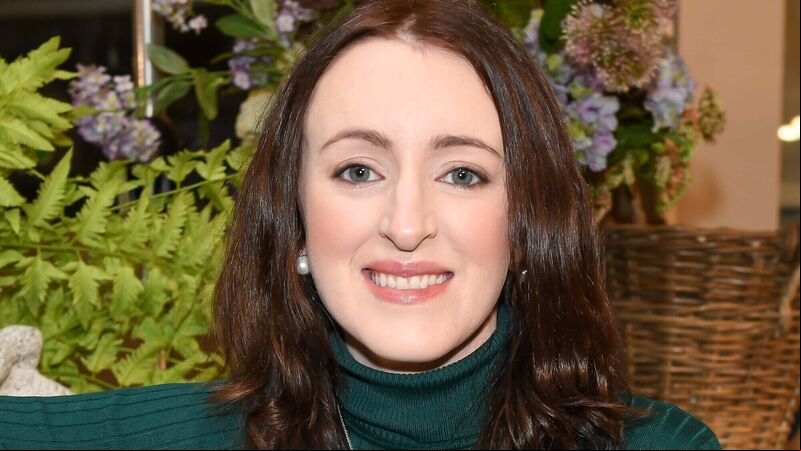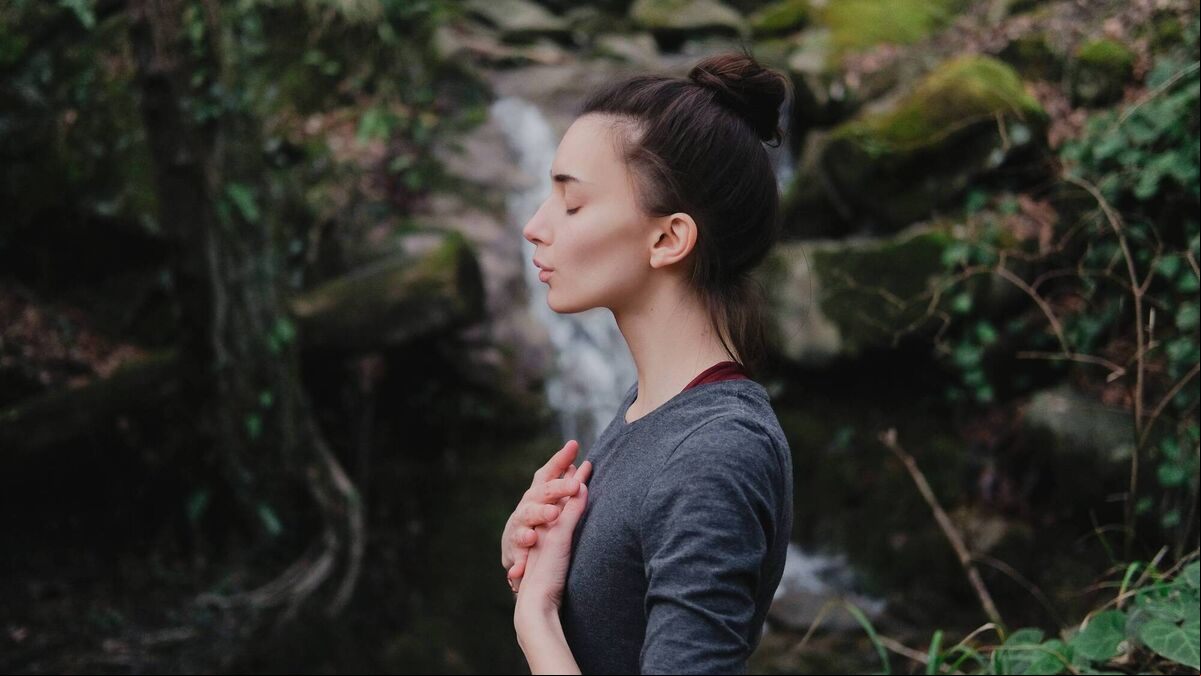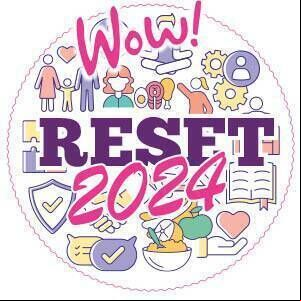WoW! Reset 2024: How to reset your wellbeing

Michelle O'Driscoll has advice to boost your wellbeing in 2024





Michelle O'Driscoll has advice to boost your wellbeing in 2024
THIS time of year is a huge cliché for ‘New year, new me’, which comes with a lot of pressure and guilt.
It might be nice to approach this opportunity to start fresh with a perspective of comion and kindness towards ourselves, and an attempt to understand what has us doing what we’re doing in the first place. Couple that with a reminder of what could be possible if we give ourselves the gift of time and - only then will real change be possible.
Realising that we’re well and truly stuck in a rut is often the key motivator for us wanting to reset our routines, is it not? We’re sick of the same old, same old and want to mix things up, achieve things that we won’t achieve by doing what we’re always doing, sabotaging our potential and our capabilities by staying stagnant where it’s comfortable and familiar.
It’s is often because our nervous systems are stuck in fight, flight or freeze that we revert to the usual ways of doing and approaching things. Our brains are not able to process anything new due to the flooding of stress hormones, so they take the path of least resistance in our neural transmission.
The path less followed requires being conscious, making more effort, being aware. Awareness of where we’re at and what we need is key to making any January New Year changes. So what should we be aware of?
Bodies
Tune into the five senses both in the morning time, in that first hour that sets the tone for our day, and then at random points as the day progresses. Ask yourself what you can see, hear, taste, feel, smell. This is a quick and automatic pathway into the present moment, even if it’s only fleeting to begin with. Practice creates progress with this.

Be curious about what you notice, and be gentle with yourself and your experience.
Breath
The breath can be an anchor, and it can also be a regulator. Spend time just noticing it, watching it, observing it. Knowing that it can breathe itself without your input. That in itself is a very powerful regulator for many, although if focus on the breath isn’t comfortable for you then don’t persist, and use another anchor instead such as sounds or your weight in the seat.
However, there are also opportunities if you notice that you’re holding your breath through tension, or not breathing very deeply, which sends signals of danger to the nervous system, that you can try a range of more controlled breathing techniques to assist that initial reset in the body.
Things like balanced breathing (in for five, out for five, both through the nostrils), box breathing (in for four, hold for four, out for four hold for four), straw breathing (in through the nose, out through pursed lips), or breathing to activate the vagus nerve (make the outbreath longer than the inbreath) can all help to reset before allowing the breath to go back to its own pattern again, hopefully in a more regulated way.
Thoughts
Noticing our thoughts with a sense of space and clarity, and recognising them as the key triggers for many of our challenging emotions, is really helpful. A simple exercise for this is to imagine a river with leaves flowing along it. The river is the mind, and the leaves are the thoughts. From your vantage point on the bank, you can see them clearly, and watch as they flow on by. If you’re in the river yourself, the leaves get caught and gather around you, and your clarity is lost. Keeping perspective and knowing that the thoughts will come and then go again is key to maintaining some control over how they affect you.
Emotions
These very much link back to that awareness of the body. Try feeling your emotions physically rather than thinking about them. Notice where you feel them, how the intensity can ebb and flow, and ultimately how they dissolve and get replaced by something else.
The realisation that you can make space for these, allow them, and not get consumed by them is really powerful. No emotion is bad or not welcome, and this softening towards them is what makes them manageable.
Seeing our patterns
Guilty of always doing the same thing and expecting a different result? You’re not alone in that, and on paper we know this approach is doomed to failure. Taking the first step of realising that change is needed to experience change is huge.

Seeing our patterns, and more than that, seeing the opportunities and potential outside of our patterns, can be really liberating and exciting - a little scary but quite exhilarating too!
Brace versus embrace
I heard author and psychotheraphist Anna Mathur describe anxiety as being forever stuck in the waiting room of life. We are anticipating the worst, and being ‘called in’ to face the presumed challenge ahead. We therefore argue that there’s no point in leaving in the meantime, and getting on with our lives. Instead, our nervous system is in a constant state of alert, in this room that is bland and boring, with only our thoughts for company.
Spending all our time in this metaphorical waiting room is essentially ‘bracing’ ourselves for the worst. Waiting, and anticipating, and fearing. Not willing to fill the time with colour and fun. There’s no knowing how long it will take to get called in to face our fear, or indeed if we ever will be. So rather than wasting our time ‘bracing’ ourselves for the worst, why not put some energy into ‘embracing’ the life we’re privileged enough to be living, filling that time with connection, rest, joy and nourishment. It’s time we won’t get back, and we can choose to either sit and wait, or get stuck in.
What if we embraced the life we have, rather than bracing against the ‘what might be’? When the time comes, we can then face what we need to face.
Breaking habits and making new ones
Rather than seeing January 1 as the one and only start date, consider approaching each week or each fortnight of 2024 as a reset in itself, step by step introducing the changes you want to make.

Bite-size is best. Instead of having to walk 30 minutes every day, what about starting with ten minutes on three days? Rather than viewing that as a failure and getting disheartened, what if we framed it as progress, a success? We’re much more inclined to continue showing up for ourselves then, and building on the progress further. Some is better than none, without a doubt.
It can be overwhelming to consider all the health related things we ‘should’ be doing, and the measurements associated with these – we ‘should’ exercise a certain amount, eat X amount of fruit and veg, drink X amount of water. What about, when coming back to these basics, that you focus on the ‘more of’ principle – and attempt to do a little ‘more of’ each of these. More is progress. That’s enough to ask for.

The other really helpful approach to creating habits is to scaffold them onto something else that already exists quite easily in your day. For example, put your journal next to your box of cereal, ready to use in the mornings. Make the rule that when you brush your teeth, you also do your skincare. When you check your phone, you also sip your water. This creates a ready-made neural pathway for your brain to link the habit to, reducing the resistance to it.
In the times we currently live, framing these desires to change in gratitude is so important. Any challenge we’re facing is balanced by so much good in our lives and in our efforts. Don’t overlook these, allow yourself to recognise and experience these. While we may struggle with specific parts of life, and wish we approached our health and wellbeing better, overall, we’re doing an amazing job in the given context, and not everything in our lives requires a reset. Indeed, much of what we do and have and experience is more than enough. We are more than enough. For the most part, no reset required.
Dr Michelle O’Driscoll writes a weekly column in WoW! She is a pharmacist, researcher and founder of InTuition, a health and wellness education company. Her research lies in the area of mental health education, and through InTuition she delivers health promotion workshops to corporate and academic organi sations nationally. See intuition.
Sign up to receive our weekly newsletter to be in with a chance to win prizes and see what's coming up in The Echo
2 minutes ago
Man who went drinking in car park of Cork's main Garda station and made threat avoids jail after turning life aroundan hour ago
Lighthearted penalty prep work pays off for Patrick Collinsan hour ago
Cork local authorities get €2.2m in funds to improve quality of housing stockone minute ago
No ‘Ready to Build’ sites made available in County CorkHave you ed your FREE  App?
App?

It's all about Cork!
Add Echolive.ie to your home screen - easy access to Cork news, views, sport and more